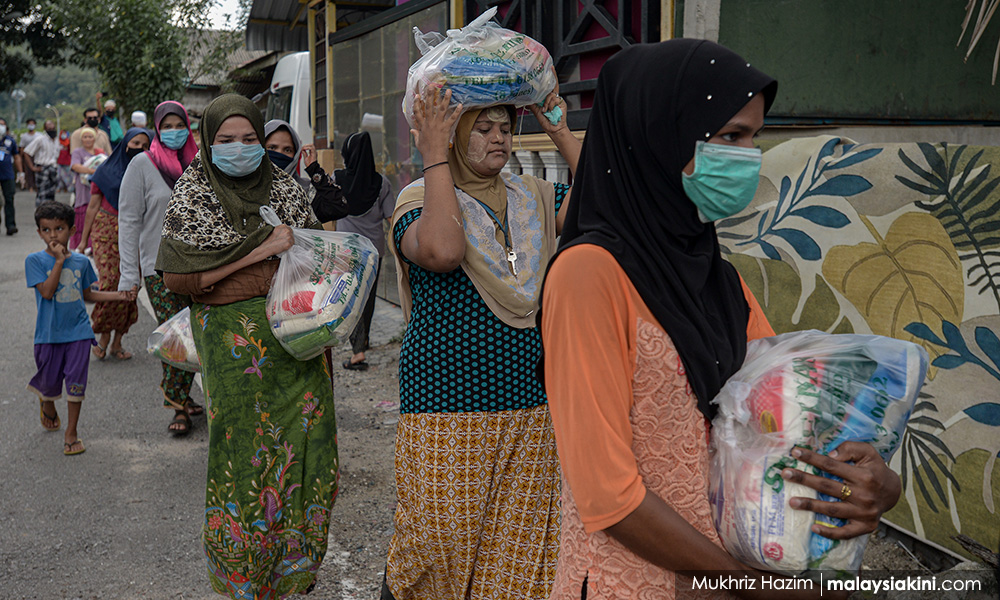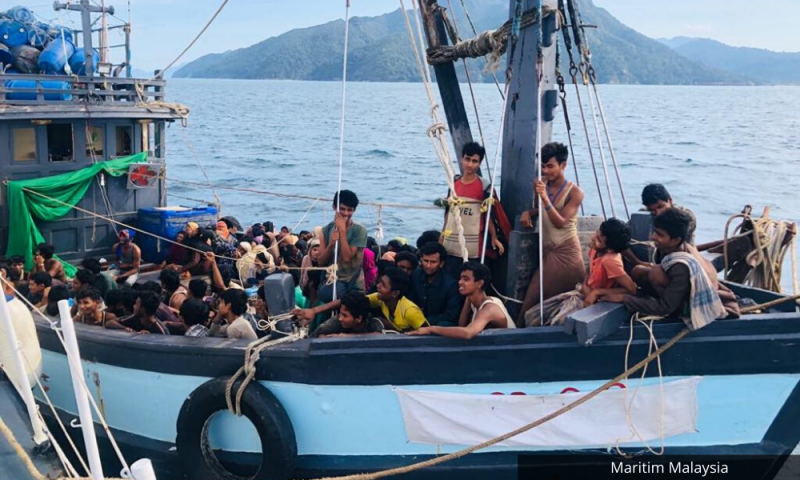COMMENT | We, a consortium of medical NGOs comprising Mercy Malaysia, Islamic Medical Association of Malaysia (Imaret) and Malaysian Relief Agency (MRA), are alarmed and saddened by the response of some Malaysians towards the refugee community in light of the Covid-19 pandemic.
One individual has even started an online petition, ambiguously titled “Say No to Rohingya”, which has garnered 30,000 signatures at the time of writing.
The petition, started by an anonymous individual, rallies Malaysians to urge the government not to heed the call of NGOs to look into refugee welfare, stating that Rohingya problems ought to be resolved by Myanmar, and that they are a burden to host countries such as Malaysia.
Apart from not proposing alternative solutions to the Rohingya issue, the petition writer had demonstrated a poor understanding of the underlying problems in their country of origin as well as the situation in the local context.
Firstly, refugees did not choose to leave their country to seek greener pastures in other lands.
Most risked their lives and that of their families escaping their own countries.
They are not here because they want to, but because they are unable to go home, hence the oft-used term used to describe the Rohingya - stateless people.
Because Malaysia is not a signatory to the 1951 Refugee Convention, the country does not have a legal framework regulating the status and rights of refugees.
This simply means that refugees are regarded as illegal or undocumented migrants and they do not have legal access to employment, education, healthcare or protection.
This failure to accord refugee status has resulted in more harm than good, where there is no administrative framework for the implementation of refugee law nor protection laws that recognises and acknowledges their presence in this country.
As the saying goes, you cannot improve what you cannot measure.
Until and unless there is a way to identify, map and coordinate the movement of the Rohingya in this country, there will always be suspicions and misconceptions about them as a community.
Their plight was brought to light again recently when it was found that many Rohingya, who are predominantly Muslims, had attended the mass tabligh gathering at Sri Petaling.
The recent lockdowns at the Rohingya hotspots of Masjid Jamek and Pasar Borong Selayang only exacerbated public resentment, at a time when many Malaysians are financially struggling from the effects of the movement control order.

As medical NGOs, we are unanimous in the stand that refugees must be screened, treated and protected from Covid-19, not only on humanitarian grounds but for infection control purposes.
Remember, these are people with no access to the basic healthcare that Malaysians take for granted.
As they are charged expatriate rates at hospitals and clinics, they would not seek medical treatment unless it is critical.
Their communities are largely unvaccinated and live in large numbers in cramped surroundings due to financial challenges.
If not quickly identified and treated, infectious diseases such as Covid-19 will continue to fester and spread not only among themselves but to our countrymen.
The government’s decisive action of identifying their cluster and moving in with mass screenings are to be lauded, for the overall good of all Malaysians.
The refugee and Rohingya issue in Malaysia does not go away simply with a petition to ‘say no’ to them.
Rather than idealistically trying to wish them and their problems away with a magic wand, our consortium chooses to tackle the problem head-on, solving one problem at a time, focusing on their potential threat of being a Covid-19 hotbed.
Despite the challenges they face in the country, refugee communities have been taking care of their communities, aided by NGOs, so as not to burden the government and the local community.
Much of their sustenance is provided on humanitarian basis, supported by foreign funding and UNHCR, not the Malaysian government as most people assume.
During this Covid-19 pandemic, some refugee communities have gone the extra mile to assist frontline health workers by producing PPEs, while others actively disseminate information or assist health workers to conduct screening for their community.
As the month of Ramadan dawns on us, we hope and pray that Malaysians will bestow some empathy and mercy upon all refugees including the Rohingya as fellow humans sharing the same space that God has bestowed upon us all.
MERCY MALAYSIA, IMARET and MRA are a consortium of medical NGOs.
The views expressed here are those of the author/contributor and do not necessarily represent the views of Malaysiakini.
Keep up with the latest information on the outbreak in the country with Malaysiakini's free Covid-19 tracker.
Malaysiakini is providing free access to the most important updates on the coronavirus pandemic. You can find them here.
Help keep independent media alive - subscribe to Malaysiakini.





